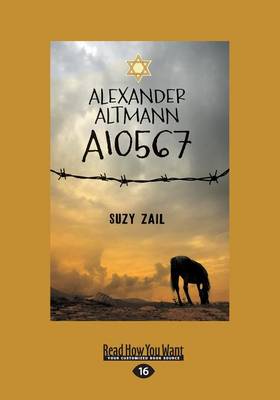
Kelly
Written on May 7, 2014
Alexander Altmann wasn't what I had expected. I assumed from the synopsis that the storyline was about being imprisoned by the Germans and concentrated on the appalling and cruel conditions. But I was pleasantly surprised. Alexander Altmann represents hope even in the darkest of conditions and the fight for life. Alexander's story was nothing short of heartbreaking, at only fourteen, he is taken into the adult male camp and kept in inhumane conditions. Men dying is a part of everyday life, and I use the term life loosely, as the prisoners are only barely existing. Alexander has been through more in his short life, than any of us would in a lifetime, he has no idea where his family is, but knows if he has any chance of surviving, he needs to remain hardened. He won't allow himself to make friends, with men dying all around him, he figures there's no point. I can't even begin to imagine being only fourteen and thrown into a terrifying world that no child or adult should experience. It was horrific.
Based on a true story, it is said that Suzy Zail was visiting the Holocaust Centre in Melbourne when Alexander Altmann begun to materialise. She was listening to a guest speaker in which an elderly man participated from the audience, uzy sought the man out after lecture and heard his story. Fred Steiner is Alexander Altmann with a fictional blend. He survived, migrated to Australia where he married and had children of his own, in a country that prides itself on freedom for all and continues to speak at the Holocaust Centre in Melbourne. Through the pen of Suzy Zail, I'm incredibly humbled and grateful to have read his story.
